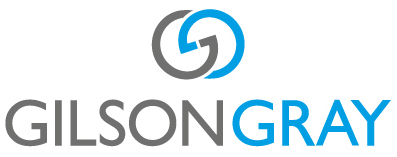David Alexander: Empathy is key to debt recovery in difficult times

David Alexander
David Alexander looks at the challenges Scottish businesses face in the current economic climate, discussing the rising corporate insolvencies and the need for empathetic and nuanced communication in resolving financial disputes.
Many predicted that 2024 would be a tough year for businesses in Scotland, with a range of macroeconomic factors impacting trading conditions and performance. While the new Labour government has promised change, the year to date has been tricky for firms across all sectors.
The latest available figures from Accountancy in Bankruptcy show that there were 313 Scottish corporate insolvencies during the second quarter of the 2024/25 financial year. This represents a 10.6% rise compared with the same time last year, with the numbers reflecting what we’re seeing on the ground – many businesses are still struggling.
For all firms, managing cash flow, paying invoices, and collecting payments remains challenging. In sectors such as construction, which comprises a large number of small businesses and sole traders, the situation has been ongoing for some time, with knock-on impacts on the supply chain. In recent months, we have also seen an increase in debt collection requests involving professional services firms operating within a similar market.
Previously, there may have been a one-size-fits-all approach to trying to recover debts of this kind. But in today’s business environment, it requires a much more nuanced style, treating each case with a different course of action. Above all, the key is to remember that it always involves dealing with other human beings.
Earlier this year, the Scottish Government voted for new legislation that will enable a pause on debt recovery action for those with mental ill health, which only emphasises the need for clear communication, empathy and understanding. In the case of small businesses, it is often people’s livelihoods on the line, which will no doubt have an impact on their wellbeing.
The first step to dealing with any type of conflict is to engage in conversation. For those with unpaid invoices, it could be the chance to explain a change of circumstances, and for those trying to collect payment, it is an opportunity to build rapport and get to know the person and their business better.
Acknowledging any financial difficulties they may be facing will demonstrate compassion and a willingness to listen. From there, you can build trust, clearly explain the risks, and improve the likelihood of agreeing on a payment plan or other arrangement. In many cases, we find that business owners are more likely to engage in this way with an independent third party and it avoids putting further strain on day-to-day relationships between suppliers and customers.
But we must also consider the people involved on the other side. The business trying to recover unpaid debts will also have bills to pay, orders to fulfil, and employees to support. Formal debt recovery action is most likely a last resort and sometimes it takes a note on a formal letterhead to prompt engagement.
Every business wants to avoid the threat of insolvency or liquidation. Communication between those due payment and those who need to repay – or the firms representing them – will always be a useful first step, but the reality is that it may require further, firmer action. While honest dialogue will not guarantee a resolution, it usually pays to remember the people involved.

David Alexander is head of debt recovery at law firm Gilson Gray










